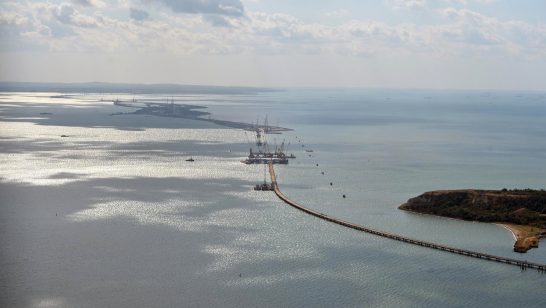
Quite often, probably for the sake of clarity and visibility, the EU is presented as a golem moulded of different but easily discernible types of clay. To set the EU in some sort of order, it is portrayed in black and white, occasionally with some shades of grey in use. Obviously, we cannot totally escape from labelling when doing any analysis of such a complex entity. However, we could do better when it comes to the very art of constructing classifications.
This problem is emblematic for debate on the EU policy towards Russia, which is inhabited – to name just a few categories utilized in recent analyses – by Russia hawks and doves, Trojan horses, friendly pragmatists, frosty pragmatists, or new cold-war warriors. It is also almost inevitably neatly organized in “pro-Russian” and “anti-Russian” camps. All those labels serve their purpose when they are treated as shortcuts so as not to become disoriented in the multifaceted environment of European policy-making. Yet, a problem arises when these heuristics turn into representations of political reality and as such become drivers of a serious public debate.
There are several reasons why speaking about “pro-Russian” and “anti-Russian” camps is useless, if not misleading.
To begin with, labels quickly become outdated. They freeze political reality and, sooner rather than later, start to lag behind the changing environment constantly reshaped by electoral cycles, new governments, new coalitions with new parties, new personalities in foreign and defence ministries etc. It applies in particular to democratic countries where the broader calls for “change” become the name of the game.
Unfortunately, and this is the second problem, it is easier to stick a convenient label (sometimes in good faith, sometimes in bad) than to remove it, especially when it is applied not for specific words or deeds but to describe states in general. This is why Russian outlets and officials re-invented and popularized the term “Russophobia” and “anti-Russian” in relation to some EU members (Poland, the Baltic states, the UK recently). The idea was to suggest that it was irrationality and prejudices that drove their policies towards Russia rather than unwillingness to accept Kremlin’s line. And Russia has succeeded in a way, since even now – despite the occupation of Crimea, war in Donbas, and Skripal case – serious Western media quite often fall into this semantic trap and analyse EU members’ policies through the prism of their alleged anti-Russian biases.
Obviously, Russia and its policies are perceived in a variety of ways both within the EU and within individual member states. Russlandverstehers can be found in many countries and social groups, in political mainstream and on the fringes, in far-right and in far-left movements, in the big business and among the disenfranchised, in academia and media. They often occupy social media both as real people, though quite often with fake identities, and as bots. One may be tempted to label them all “pro-Russian”. But in order not to get confused by generalisation, there is a need to scratch the surface of political reality in each and every country to carefully identify those people/groups, to understand their agenda (is it about following Kremlin’s line or using it for domestic consumption?), to follow (and go after) the money. The map will be blurred, ambiguous and inconsistent but definitely it will be closer to reality then any artificially created camps. The more general the diagnosis is, the less effective is the therapy. And it works both ways. Instead of talking about the “anti-Russian” camp, it may be more productive to look into specific reasons of criticism of Russia. It is mostly related to developments of Putin’s regime and its policies, but is sometimes also focused on Russia’s imperial legacy and historical determinism.
Thirdly, the metaphor of opposing camps implicitly suggests that Russia is the major point of reference for many, if not all, EU and national decision makers and that it is Russia as such that is a problem. These are half-truths at best.
For EU member states, policy towards Russia is just a derivative of other policies. For most governments, it is instrumental to secure their other objectives within EU or NATO agendas. Even the seemingly “pro-Russia” politicians here and there (such as Orban or Salvini) usually use their admiration for president Putin and calls for lifting sanctions in Brussels as a bargaining chip to increase their chances for success in other domains. There are just a few limited constituencies in EU states that profit directly from relations with Russia (a part of big business, mostly energy majors and some banks). Therefore, there is not enough space for accumulating significant political capital by Russia-friendly messaging whereas political costs of acting on the calls to return to business as usual without significant Russian concessions are still prohibitive. Russia may seem to be a major reference point when analysed alone by Russia-focused or security experts but when put against the background of other challenges that EU countries face today it is falling down on a scale.
Simply put, Russia is important, but not important enough to generate deep divisions within the EU. Had it been so, then EU sanctions would have already been lifted or eased given verbal support for change coming from Austria, Italy or Hungary. Clearly, the most contentious Russia-driven issue of today, namely the Nord Stream 2 project, has the potential to inflict damage upon EU unity. Yet, Russia is just part of the picture with more and more domestic and intra-EU issues at stake.
Still, Russia’s secondary role does not mean it will stop trying to ferment new divisions through personal linkages, shady financial interconnections, and export of peculiar business practices.
Finally, let’s call spade a spade. It is not Russia that is a problem as such but the condition of the international/European order that has been undermined by Moscow’s military and political adventurism. So, the national policies of non-recognition of Crimea’s annexation and support for territorial integrity of Ukraine are by no means driven by being in one imagined camp or another but rather by the willingness to defend the existing system based on international law as a cornerstone of peace and stability in Europe. That is also why expressing only deep, grave, or serious concern after the Azov Sea incident was not enough given the nature of risks emanating from Russian recklessness.
Similarly, pushing back after Russian intrusion into Western political systems has nothing to do with being anti-Russian but rather means being responsible for securing the free choice of people to keep the principle of representativeness intact. Support for sanctions and opposition against awarding Russia with new gas pipelines has less to do with one’s views on how predictable Russia is but rather with the credibility of the West as a whole. Are we serious in our policies or – as many inside Russia would like to see it – are we just better at keeping appearances and playing with labels?
So, for the sake of analytical clarity and political efficiency there is a need to put catchy labels aside when discussing the future of EU-Russia relations and focus on exact words and actions, damage done, promises actually made and broken, laws obeyed and violated. It will then become clear why the burden of proof rests on Russia to show if it is interested in transformation from a strategic spoiler to a constructive international actor.
The opinions articulated above also do not necessarily reflect the position of the European Leadership Network or any of its members. The ELN’s aim is to encourage debates that will help develop Europe’s capacity to address pressing foreign, defence, and security challenge.


